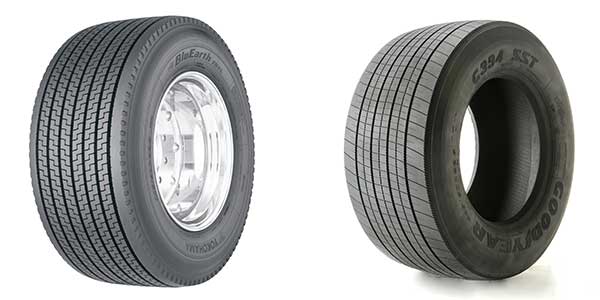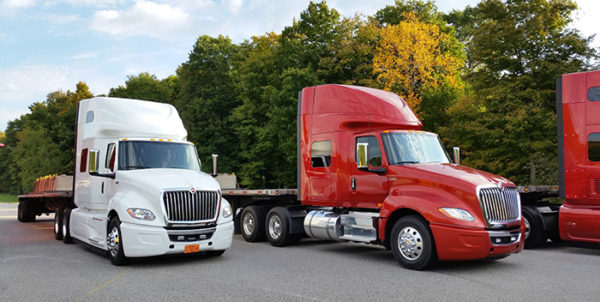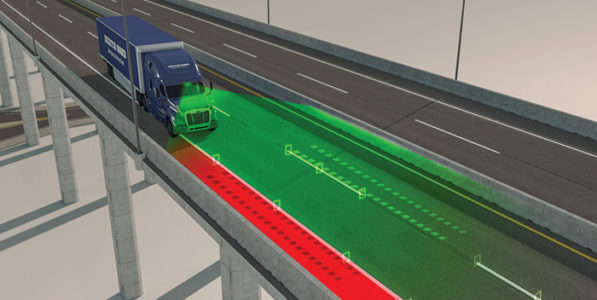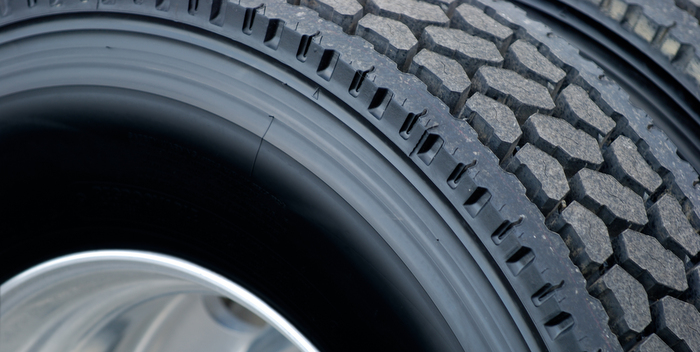Answering your wide base tire questions
Adoption of wide base tires has continued to increase in the years since their entrance into the market in 2000. Still, they make up a relative minority of the market, and many fleet managers may still have questions about whether wide base tires are right for their fleet. So with that in mind, let’s tackle four

Plotting a course for truck platooning
Truck platooning technology often gets lumped into the overall autonomous technology conversation. While platooning is certainly a building block toward a more autonomous truck, its merits are worth investigating separately. The recent Trucking Efficiency Confidence Report looked at a two-truck platoon case study and found that a separation distance of 40 to 50 ft. could

October’s five truck trend takeaways
We know it’s not easy to keep up with everything that happens in the world of trucking. So here are the biggest stories from October focused on the latest truck trends, all in one place. 5. Fleets are seeing the benefits of traction control technology The National Highway Traffic Safety Administration (NHTSA) will require full-stability technology on most

WABCO to work with Peloton on platooning technology
WABCO Holdings Inc. has announced that it is working with Peloton Technology on truck platooning solutions, integrating commercial vehicle-to-vehicle communication and other automation technologies that further improve safety and fuel efficiency. By electronically linking two or more tractor-trailers to form virtual road-trains on highways, platooning increases fuel economy by more than 7%, namely up to 4.5%

Fuel efficiency increases continue for progressive fleets
A recent study from the North American Council for Freight Efficiency (NACFE) and Carbon War Room followed 17 fleets and found that they saved $500 million in fuel compared to the national average in 2015, thanks to their adoption of various fuel efficiency technologies. These fleets also saw a 3% improvement in fuel economy compared

What to know about tires and 6×2 configurations
Many commercial fleets are evaluating the benefits of specifying new tractors with a 6×2 configuration versus the more popular 6×4 configuration. The standard 6×4 consists of three axles and six wheel-ends; both axles have driven axles. The new 6×2 features three axles and six wheel-ends on which only one of the axles is driven. The

Why it’s important to test new engine oils
Last month, I mentioned that the North American Council for Fleet Efficiency (NACFE) recommended that fleets switch to the API FA-4 low viscosity lube oils immediately to save fuel and decrease (GHG) emissions. As stated by the report, viscosity is defined as a measure of a fluid’s internal resistance to flow. In a truck’s engine,

How simple truck maintenance can improve fuel economy
Fuel economy is always a top consideration to improve a trucking operation’s bottom line. Proper maintenance and new aerodynamic vehicles are among the ways that the trucking industry is transforming its fuel economy standards. A new era of highly advanced heavy-duty vehicles that get unprecedented fuel savings is ahead. Simple maintenance can have a big

Fuels and oil: Finding truth in the noise
We live in a confusing age. Considerable information is available thanks to the internet, but there is no easy way of assessing its validity. Anyone can make a statement on the internet—and it is up to us to decide the truth of the statement. Let’s take a look at some recent claims that impact your

The skinny on low-viscosity oils
The North American Council for Freight Efficiency (NACFE) has released its Confidence Report on low-viscosity oils. It begins with the premise that truck engine mechanical losses occur from pumping and friction and consume approximately 16% of the total energy input of the vehicle. Lower-viscosity oils (those with less internal resistance to flow) will reduce these

